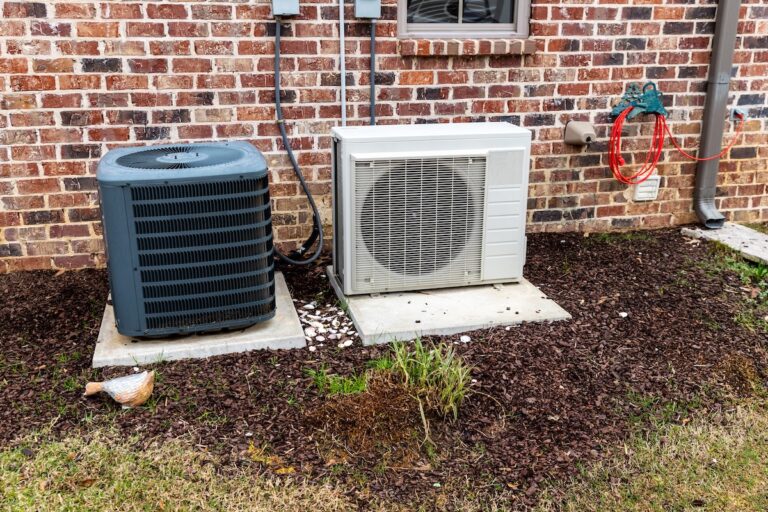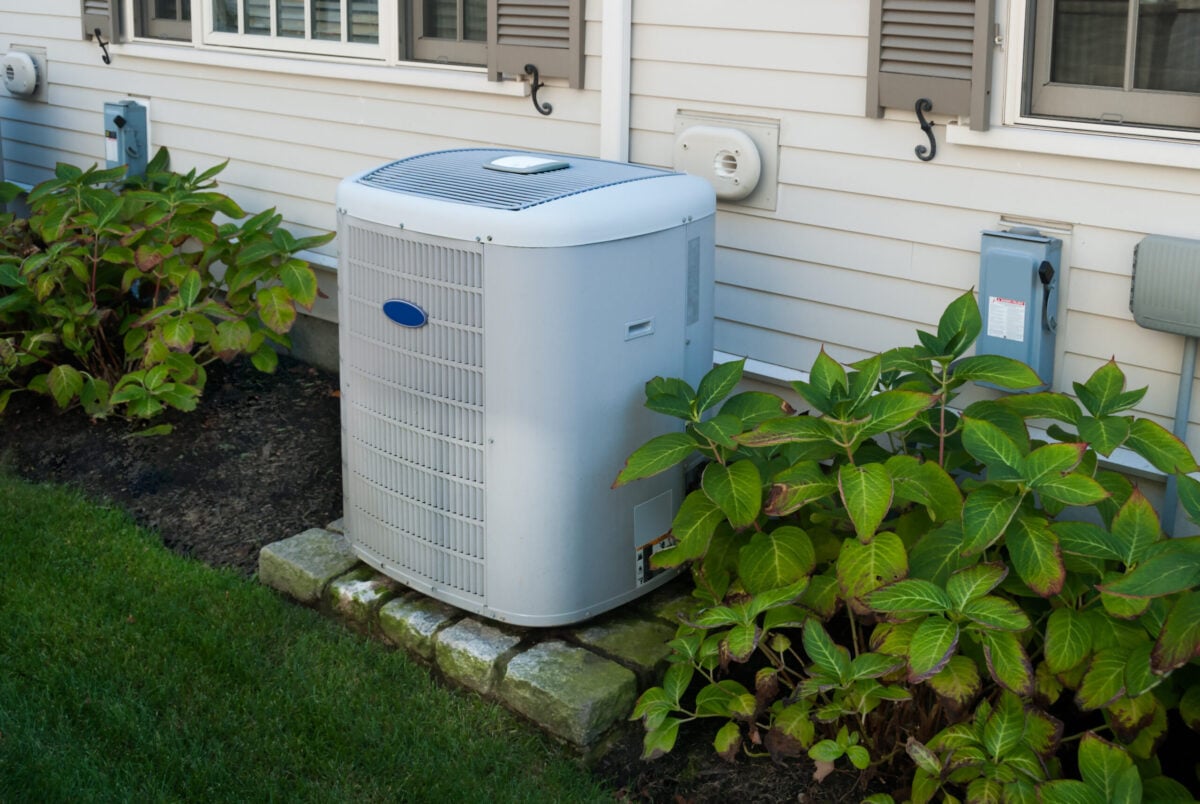
When the summer heat hits in the Twin Cities, the last thing you want is for your air conditioner to suddenly stop working. One of the most common culprits behind a faulty AC unit is a failed capacitor. Understanding what an ac capacitor does and recognizing the signs of failure can save you from a sweltering home and costly emergency repairs. At Thelen Mechanical, we believe in empowering homeowners with the knowledge they need to keep their systems running smoothly.
A faulty AC capacitor can bring your entire cooling system to a halt, but knowing what to look for can make all the difference. This guide will walk you through everything you need to know about this crucial component.
Here’s what we’ll cover:
- The essential role of an AC capacitor in your cooling system.
- The key signs that indicate it’s time for a replacement.
- The difference between a start capacitor and a run capacitor.
- Why professional help is necessary for this type of repair.
✅ Why Your AC Capacitor Is So Important
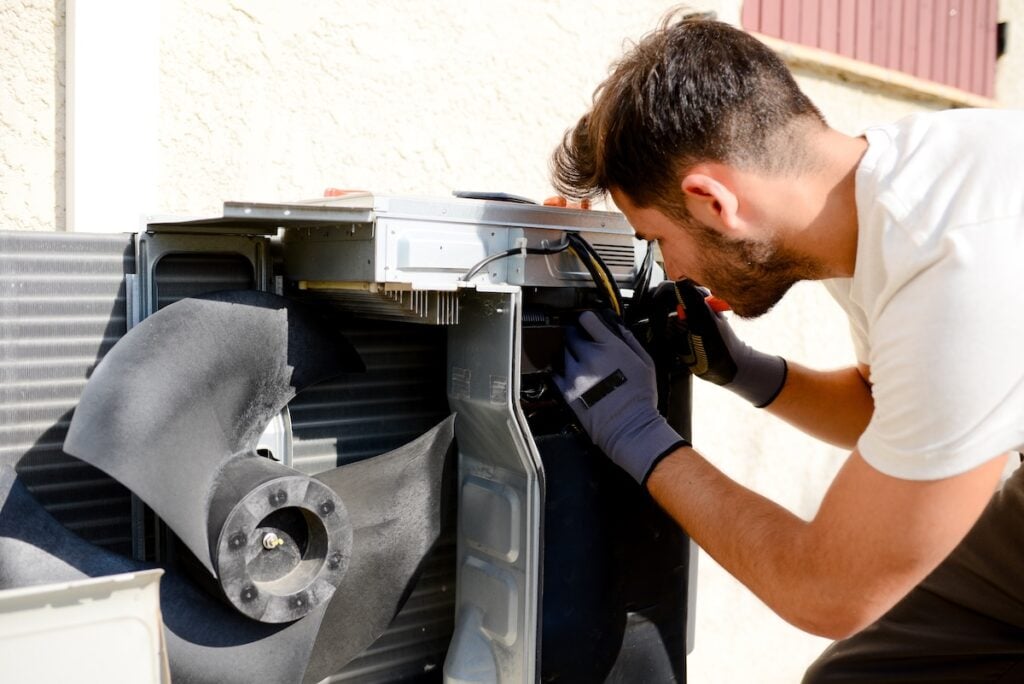
Your AC capacitor is a small but mighty component that plays a huge role in your air conditioner’s operation. Think of it as a temporary battery that gives the motors in your AC unit the jolt of energy they need to start up and continue running.
Without a functioning capacitor, the motors in your compressor, blower, and outdoor fan won’t have the power to do their jobs. This is why a capacitor failure can cause your entire system to shut down. Maintaining a healthy capacitor is crucial for several reasons.
- System Startup: It provides the initial burst of energy required to start the motors in your AC unit.
- Continuous Operation: It ensures the motors have a steady supply of energy to run smoothly and efficiently throughout a cooling cycle.
- Energy Efficiency: A healthy capacitor helps your AC run more efficiently, which can lower your energy bills.
- Prevents Damage: Replacing a failing capacitor promptly can prevent more extensive damage to the AC motor or compressor, which are much more expensive to repair.
⚠️ 5 Signs It’s Time to Replace Your AC Capacitor
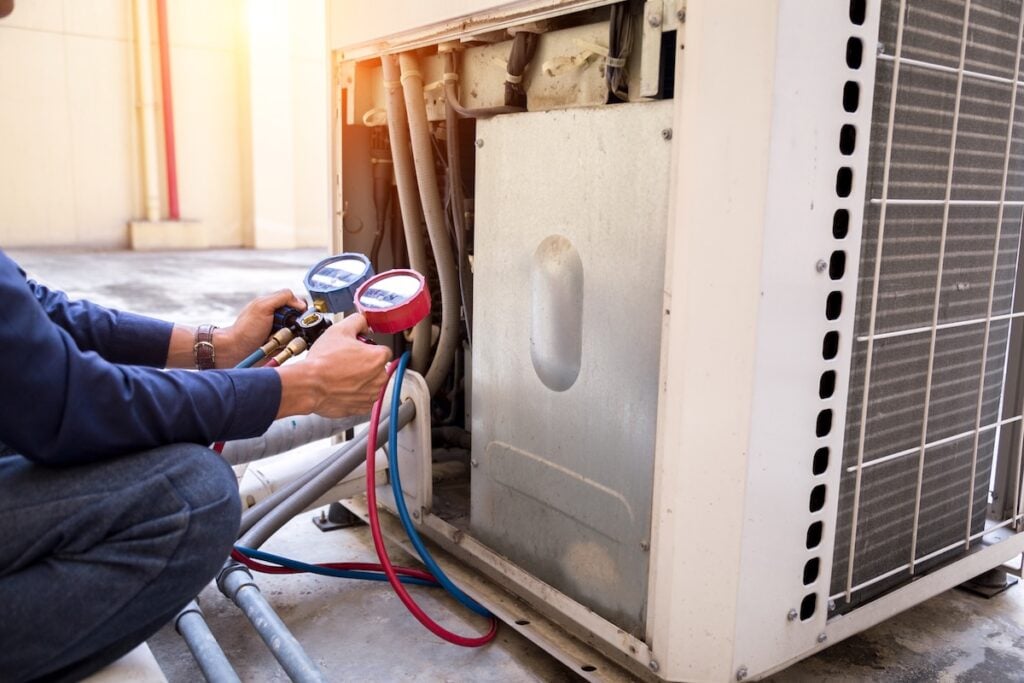
Knowing when to replace your AC capacitor can prevent a complete system breakdown, especially during the peak of summer. A failing capacitor will often show clear warning signs before it gives out completely.
Here are the top five indicators that your AC capacitor may need to be replaced.
1. Your AC Unit Won’t Turn On
If your air conditioner doesn’t start at all, a dead capacitor is a likely suspect. The capacitor’s main job is to provide the energy needed to kickstart the system.
- When you turn on your AC, you might hear a faint humming or clicking sound, but the fans and compressor won’t engage.
- This indicates the motors are trying to start but aren’t receiving the necessary power boost from the capacitor.
2. The AC Hums but Doesn’t Blow Cold Air
A common sign of a failing capacitor is an audible humming noise coming from your outdoor unit. This sound often means the motor is struggling to start but can’t get the jolt it needs.
- The capacitor is attempting to provide power, but it’s too weak to fully engage the motor.
- If you notice this humming, it’s best to turn off your AC unit immediately to prevent burning out the motor and call a professional for an inspection.
3. Your AC Struggles to Start or Shuts Off Randomly
Does your AC unit take a long time to start up after the thermostat kicks in? Or does it shut off unexpectedly in the middle of a cooling cycle? These are classic symptoms of a weak capacitor.
- A capacitor that is losing its charge will struggle to provide a consistent flow of energy, leading to intermittent operation.
- This on-and-off cycling can put significant strain on other components of your AC system, leading to more serious problems down the line.
4. You Notice a Clicking Sound
A clicking sound coming from your outdoor unit shortly after it tries to start can also point to a capacitor issue.
- This sound is often the system trying to turn on and then quickly shutting down because the capacitor can’t supply enough power.
- Repeated clicking is a clear signal that something is wrong and requires immediate attention from an HVAC technician.
5. Physical Signs of Damage on the Capacitor
If you’re comfortable safely inspecting your outdoor unit (with the power turned off), you might be able to see physical signs of a bad capacitor. A technician will look for these during a maintenance visit.
- Bulging or Swollen Top: A healthy capacitor is perfectly flat on top. If you see a swollen or bulging top, it’s a definite sign of failure.
- Leaking Fluid: Capacitors contain an oily fluid. If this fluid is leaking out, the component is compromised and needs immediate replacement.
⚙️ Start Capacitor vs. Run Capacitor
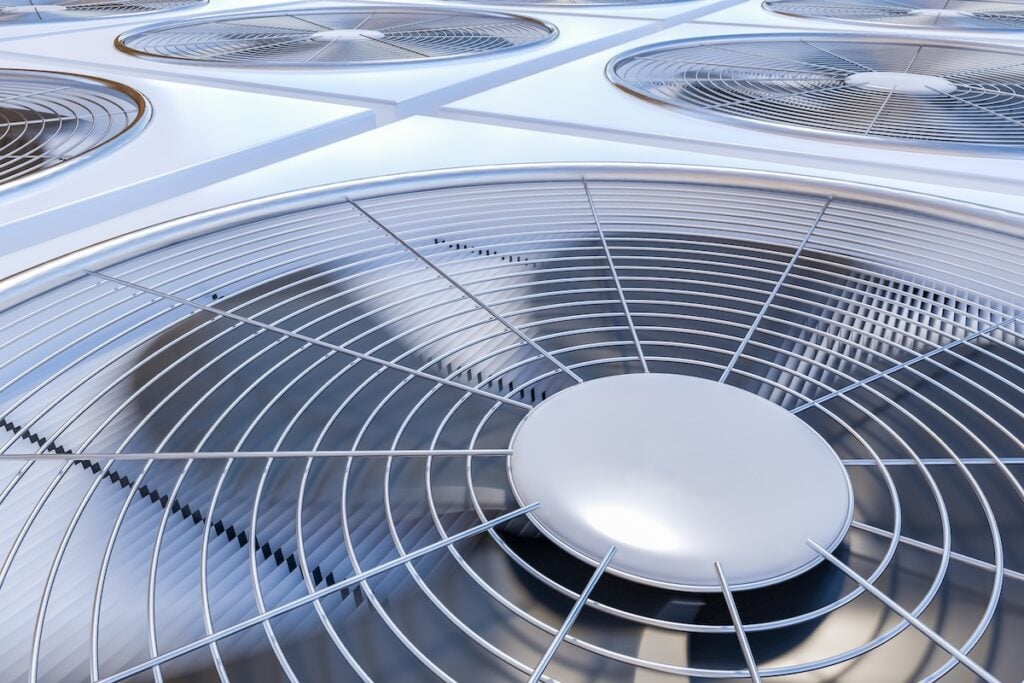
Your air conditioning system actually uses two types of capacitors to function correctly: a start capacitor and a run capacitor. While they work together, they serve distinct purposes, and understanding the difference can help you better communicate with your HVAC technician.
Both types are essential for your AC’s performance, and a failure in either one can cause your system to malfunction.
Start Capacitor
- Function: Just as the name suggests, the start capacitor’s job is to provide a powerful jolt of electricity to get the AC’s compressor motor started. It only works for a few seconds at the beginning of each cooling cycle.
- Analogy: Think of it like the initial push you give someone on a swing. It requires a lot of energy to get them going, but once they’re moving, it takes less effort to keep them in motion.
- Failure Signs: If your start capacitor fails, the motor will likely hum but won’t be able to start running. You might also hear that tell-tale clicking sound as it tries and fails to engage.
Run Capacitor
- Function: Once the motor is up and running, the run capacitor takes over. It provides a smaller, steady stream of energy to keep the motor and fan running efficiently and smoothly throughout the entire cooling cycle.
- Analogy: This is like giving small, consistent pushes to keep the person on the swing going. It doesn’t require a big burst of energy, just a constant supply to maintain momentum.
- Failure Signs: A failing run capacitor can cause the motor to run inefficiently, leading to higher energy bills, overheating, and eventual motor burnout. Your AC might also shut down unexpectedly during operation.
Some modern AC units use a dual run capacitor, which is a single component that serves both the compressor motor and the fan motor. Your HVAC technician will be able to identify which type your system uses and what needs to be replaced.
❄️ Get Your AC Back in Action with Thelen Mechanical
A functioning AC capacitor is essential for keeping your home cool and comfortable. While it might be a small part, its failure can bring your entire system to a halt. Recognizing the signs of a bad capacitor and calling for professional help can save you from bigger, more expensive repairs.
Replacing a capacitor involves handling high-voltage electrical components and should always be left to a trained professional. The expert technicians at Thelen Mechanical have the tools and expertise to safely diagnose and replace your AC capacitor, getting your system back up and running in no time.
If you’re experiencing any of the warning signs discussed in this guide, don’t wait for a complete breakdown. Contact Thelen Plumbing, Heating, and Air today to schedule your AC repair service and enjoy a cool, comfortable home all summer long.
Unlock Our Limited-Time Deals!
Take advantage of our offers on AC tune-ups, new installs, repairs, and more.
We Can’t Wait to Help Your Home!
"*" indicates required fields



